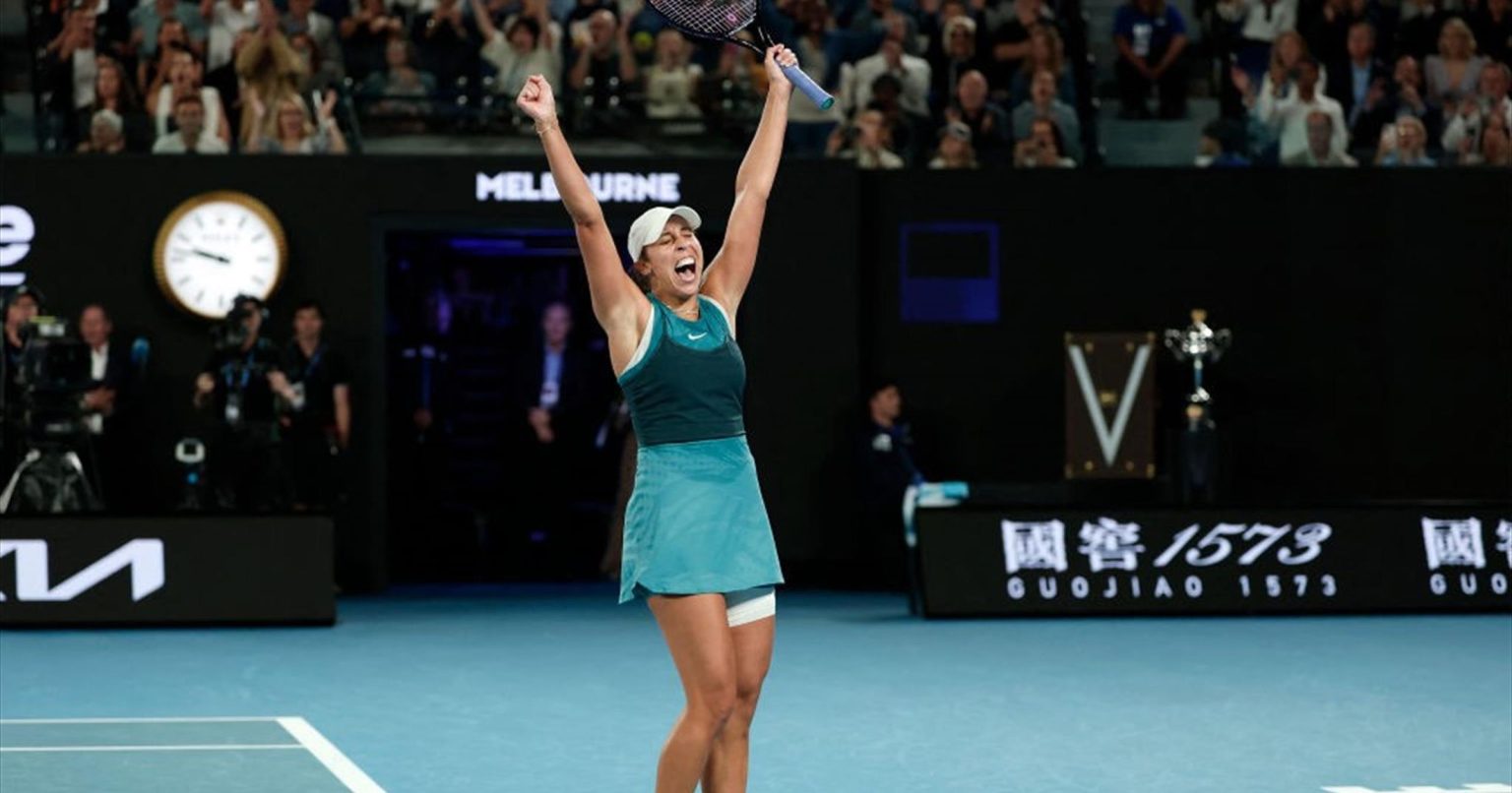The 2023 Australian Open women’s singles final witnessed a dramatic clash between two powerful players, Madison Keys and Aryna Sabalenka, culminating in a memorable victory for Keys and a poignant display of frustration from Sabalenka. This hard-fought battle showcased the contrasting styles and emotional journeys of both athletes, ultimately etching a significant chapter in their respective careers. Keys, known for her aggressive baseline game and powerful serve, finally claimed her maiden Grand Slam title after years of navigating the pressures and expectations of professional tennis. Sabalenka, a rising force in women’s tennis with an equally explosive game, succumbed to the pressure of the final, her disappointment culminating in a symbolic act of racquet smashing. This match wasn’t just about the trophy; it was about resilience, mental fortitude, and the complex emotions that accompany elite athletic competition.
Madison Keys’ journey to Grand Slam glory was a testament to perseverance. Having reached the semifinals of the US Open and the Australian Open previously, she had come close to the pinnacle of the sport but hadn’t quite managed to break through. The pressure of expectation, compounded by the scrutiny of the media and the weight of personal ambition, had often proved a formidable opponent. However, in Melbourne, Keys seemed to find a new level of composure and control, managing her emotions and channeling her power with laser-like precision. Her aggressive groundstrokes, particularly her forehand, consistently found their mark, dictating play and keeping Sabalenka on the defensive. Moreover, she served with remarkable accuracy and power, accumulating aces and significantly reducing her double faults, a weakness that had sometimes hampered her in the past. This improved consistency, coupled with a newfound mental resilience, allowed Keys to navigate the challenging moments and capitalize on opportunities, ultimately leading her to triumph on the grandest stage.
Aryna Sabalenka, on the other hand, entered the final riding a wave of momentum, having played dominant tennis throughout the tournament. Her powerful serves and aggressive baseline game had decimated her opponents in the earlier rounds, marking her as a clear favorite for the title. She possesses a raw power and athleticism that makes her a formidable opponent, capable of hitting winners from any position on the court. However, the pressure of a Grand Slam final, the weight of expectation to secure her first major title, seemed to take its toll. Sabalenka’s normally potent serve became erratic, plagued by double faults at crucial junctures. Her groundstrokes, usually so reliable, began to stray, landing long or wide under the mounting pressure. The final, instead of being a showcase of her immense talent, became a stark reminder of the mental battles that often accompany elite sports.
The contrast in their performances highlighted the crucial role of mental fortitude in high-stakes tennis. While Keys exhibited composure and control, channeling her aggression effectively, Sabalenka struggled to manage her nerves, her frustration spilling over in visible displays of emotion. This difference in mental approach became increasingly apparent as the match progressed. Keys, despite facing challenging moments, maintained her focus and belief, while Sabalenka appeared increasingly agitated, her game becoming unravelled by the pressure. The final served as a poignant reminder that in elite sport, technical prowess alone is not enough; it must be complemented by mental resilience and the ability to perform under immense pressure.
The symbolic act of Sabalenka smashing her racquet after the final point encapsulated the emotional rollercoaster of the match. It was a raw, unscripted moment that revealed the intense frustration and disappointment of a player who had come so close to achieving a lifelong dream. While some may criticize the gesture as unsporting, it also served as a reminder of the immense pressure these athletes face and the emotional toll that defeat can take. It was a human moment in the high-stakes world of professional tennis, a reminder that even the most talented athletes are vulnerable to the pressures and disappointments inherent in the pursuit of excellence. It was a moment that underscored the human drama that unfolds behind the polished facade of professional sport.
The 2023 Australian Open women’s final will be remembered not just for Madison Keys’ triumph but also for the contrasting emotional journeys of the two finalists. It showcased the power of resilience and mental fortitude in the face of adversity, highlighting the importance of emotional control in high-pressure situations. While Keys celebrated a hard-earned victory, Sabalenka’s journey, though ending in disappointment, offered a valuable lesson in the complexities of elite competition and the ongoing battle between talent, pressure, and the pursuit of sporting greatness. This final, with its contrasting narratives, provided a compelling glimpse into the human drama that unfolds behind the scenes of professional tennis, reminding us that beyond the trophies and accolades, these are athletes grappling with immense pressure, striving for excellence, and ultimately, navigating the complex landscape of human emotion. It was a match that transcended the sport itself, offering insights into the human condition and the relentless pursuit of dreams.


